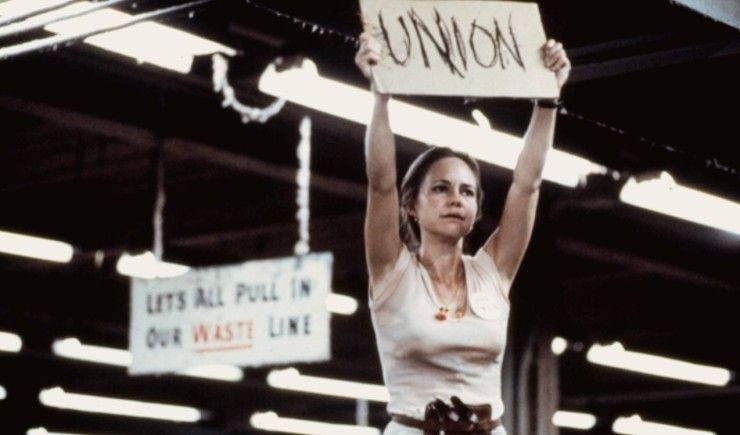
Do you like watching movies and TV shows?
Last night, the WGA and AMPTP walked away from the table without an agreement.
It’s a frustrating time to be a writer in Hollywood, especially since the things we were asking for seem so reasonable when you look at them. In six weeks of negotiations, the AMPTP didn’t even make counteroffers to many of the writers’ points. It’s disheartening, and it’s a sign of why you should care about the writer’s strike.
If You Like Watching Great Movies and TV Shows, Then You’re on the Writers’ Side
It has been 15 years since the WGA’s last strike, and it has never felt more necessary than it does now.
After an economic downturn and after the dismal COVID-19 years, you would think Hollywood would want to rebound with great shows and movies written by people who care.
But after six weeks of tough negotiations, the AMPTP didn’t even counter many of the writers’ asks.
This may seem like a WGA-only issue, but it affects all of Hollywood. Even if you are in the DGA or SAG-AFTRA or the PGA, what the writers are asking for now will hopefully set the precedent for what you’ll ask for and get in your negotiations later this summer.
People come to Hollywood because they want to be storytellers.
Even if you’re not here to be a writer, you know that great writing is the foundation of all your favorite movies and TV shows. A strike means that writers across mediums will not be turning in work. There won’t be new episodes of TV being written or movies as well.
There will also be pickets at the major studios.
Why Are We Taking This So Seriously?
You don’t have to take my word for it. Listen to the WGA, who said, “The survival of writing as a profession is at stake in this negotiation,” and then expanded, “Driven in large part by the shift to streaming, writers are finding their work devalued in every part of the business. While company profits have remained high and spending on content has grown, writers are falling behind.”
The WGA continued, saying in a statement, “The companies have used the transition to streaming to cut writer pay and separate writing from production, worsening working conditions for series writers at all levels.”
Writing used to be a very lucrative pathway in Hollywood. Now, studios are working to change that. Driven by the tech companies that have bought out many of the studios, writing is becoming closer to a gig job than anything else.
Here’s a personal anecdote: I got on my first TV show earlier this year. When negotiating my salary for the room, the studio put an exclusivity clause in there, meaning that if I took this job, I could only work on this show all year. Well, that show was only five episodes, and that room was ten weeks. So, what was I supposed to do for the other 42 weeks of the year?
Staff writer pay is almost right at $5,000 a week, which means that’s $50k spread over the contract. But after agent, manager, lawyer, taxes, and WGA dues, it’s more like $35,000.
That’s not enough to live anywhere in Los Angeles.
How would I be able to afford rent if I wasn’t allowed to work?
My lawyer countered, and we got the exclusivity dropped… but only in features. There’s also a clause where I can ask permission to work on another show.
Payment needs to go up to match inflation and match the profits these shows and movies rake in for the companies.

What Did the Writers Ask For?
Writers across the board are only asking for 2% more of the profits, which are in the billions.
The WGA explained, “The entertainment segments of the industry’s major companies — Netflix, Paramount Global, Warner Bros. Discovery, Fox, Disney, and Comcast/NBCUniversal — posted an average of $29 billion in annual operating income between 2017 and 2021.” They published a report that says, “‘Legacy media companies’ profits in 2022 were lower, but the companies expect improvement in the near term as they build towards increased profitability in streaming.”
Streaming is a cash cow. Right now, these streamers pay no residuals to the writers who create and write TV shows and movies.
It used to be you could write something and then expect residuals if it was a hit or even a moderate success. But in Hollywood now, streamers don’t want to compensate that way, even though it has always been that way.
They won’t share numbers and refuse to pay fairly.
There’s also the case of artificial intelligence.
The WGA wants to make sure studios don’t force writers to rework terrible AI ideas, and then pay them less rates for rewrites or other loopholes. They want to regulate the use of AI or similar technologies to ensure compensation, residuals, rights, and credits are fair to writers.
You can read a detailed list of what the writers want here.
Let me know what you think in the comments.














